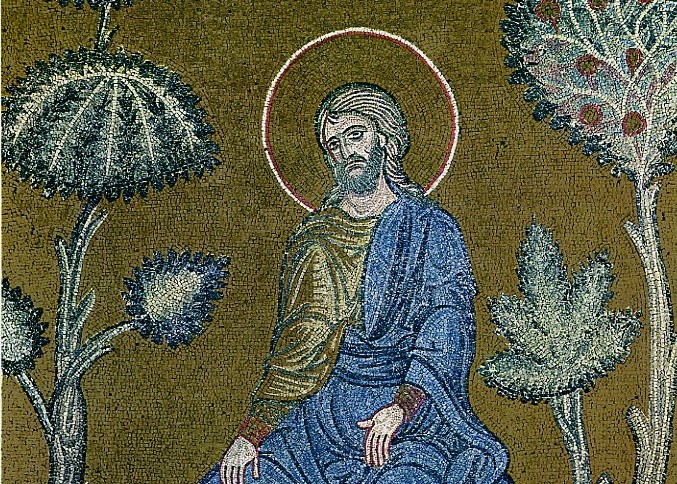
Published April 4, 2024
Next week, the Dicastery for the Doctrine of the Faith will publish a document titled Dignitas infinita. According to the prefect Cardinal Víctor Manuel Fernández, the text will include, “a strong criticism of moral questions such as sex-change surgery, surrogacy, and gender ideology.”
There’s no little consternation about the forthcoming document. The chaotic and confused rollout of Fiducia supplicans (on blessings for same-sex couples and couples in “irregular unions”) just before Christmas, including that document’s varied reception (or rejection, as the case may be) and the Vatican’s hurried attempts to clarify and qualify, did not bolster confidence in the DDF’s ability to handle divisive issues well.
There’s even reason to believe that Rome – or at least the prefect of the DDF – sees the new document as an opportunity to mollify those who were unhappy about Fiducia supplicans. Back in January, Cardinal Fernández himself implied that those most troubled by FS might find the follow up document more to their liking. “In this sense, the most worried people will be able to rest,” he said.
Meanwhile those who see FS as a theological muddle, a pastoral and ecumenical disaster, and a desperate strain on ecclesial unity have little reason to hope that Dignitas infinita will make up for it, no matter how hard a line it takes against gender ideology. At the same time, those who cheered FS now have reason to worry the pendulum might be about to swing the other way.
Some Catholics, the sort who have always been uncomfortable with Pope Francis’ frequent criticisms of gender ideology, have already begun hedging against disappointment. As one writer at Fr. James Martin’s “Outreach” website put it: “Claiming that there is a ‘gender ideology’ is, in fact, the ideological position. And the claim that a gender ideology exists is not supported by a clear understanding of ideology itself.”
Now, I think that writer gets it exactly backwards. (And I think Pope Francis and Cardinal Fernández would agree with me there.) But the deeper point is this: the DDF is going to be touching upon questions about which there is profound disagreement within the Church. Questions like, “What is the human person?” And it will be worth paying close attention to how Dignitas infinita grounds its moral and pastoral considerations.
Human dignity is a consequence of both our origin and our end. We are made in God’s image and likeness, and we are made for communion – both here, albeit imperfectly, in this life, and forever with God in the next. To grasp human dignity is to grasp something of the whole order of Creation and of our place and purpose in that order. As Pope Francis writes in Laudato Si: “The universe did not emerge as the result of arbitrary omnipotence, a show of force or a desire for self-assertion. Creation is of the order of love.”
Creation is the order of love. When we cooperate with the order of Creation, we grow and become more like the one who created us. Sin, by contrast, arises from and causes the disordering of our loves. When we love the wrong things, or love them in the wrong way, we not only violate the order of things, we invite further disorder, for ourselves and others. Sin masks and diminishes our dignity, though never destroys it entirely.
But what are the right things to love and the right ways to love them? In other words, how do we know what is good? Pope John Paul II, in Veritatis Splendor, gave this answer to that crucial question:
Only God can answer the question about the good, because he is the Good. But God has already given an answer to this question: he did so by creating man and ordering him with wisdom and love to his final end, through the law which is inscribed in his heart (cf. Romans 2:15), the “natural law.”
And here is why I say the theological lens through which Dignitatis infinita approaches the subject of human dignity is critically important. Without a proper sense of the ordering of reality – which means both the revealed and natural law – the notion of human dignity loses its most profound and transcendent meaning. When this happens, the social or physical sciences are expected to explain and defend human dignity, which they cannot possibly do.
The language of natural law is unpopular these days, not least because we have lost any sense of nature. This is perhaps clearest in the arena of human sexuality. For years, there has been a concerted effort to undermine the Church’s teaching that homosexual acts are intrinsically disordered. For decades, many in the Church have sought liberation from the teachings of Humanae vitae on the proper ordering and ends of human sexuality.
To reject the language of ordered (and disordered) love would not be a liberation. Rather, it would be a willful obfuscation of reality. We were created within the order of love and our human dignity – the dignity arising from our origins and ends – only fully makes sense in the context of that ordering.
To diminish the importance of natural law would be to narrow our understanding of the order of Creation. Rather than an order of love in which we can cooperate through our moral reason, creation would be reduced to a divine act of “arbitrary omnipotence, a show of force or a desire for self-assertion.” In such a world, there is only submission or rebellion.
Nor should anyone imagine that the unraveling of the language of order and disorder would end with human sexual morality. The Church’s teachings on the common good, economic justice, and care for Creation – in fact, the entirety of Catholic social teaching, like most of her moral theology – rest on the same natural law foundations. Those remain the surest foundations for grounding a defense of human dignity in the face of the new challenges of our day.
Whether Dignitas infinita will reinforce and build on those foundations – or not – remains to be seen.
Stephen P. White is a fellow in the Catholic Studies Program at the Ethics and Public Policy Center. Mr. White’s work focuses on the application of Catholic social teaching to a broad spectrum of contemporary political and cultural issues. He is the author of Red, White, Blue, and Catholic (Liguori Publications, 2016).











